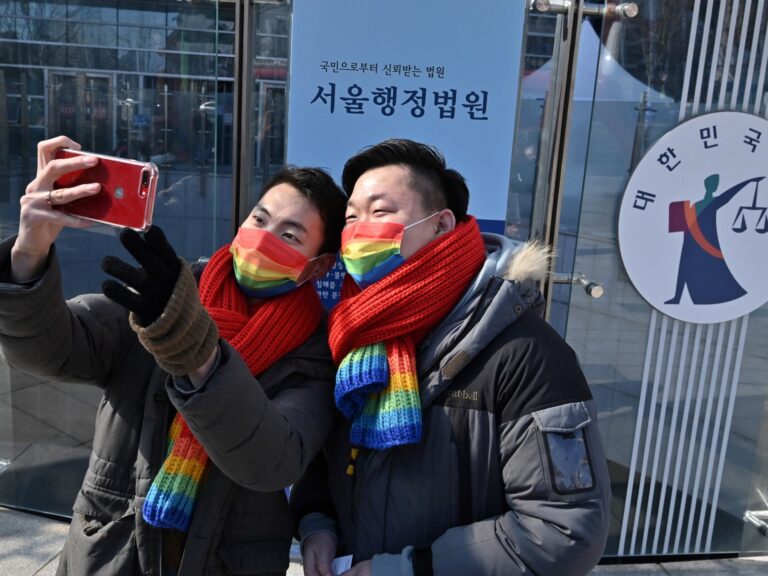Activists have welcomed the ruling, but systemic discrimination remains in countries where same-sex marriage is not legal.
South Korea’s Supreme Court has ruled that the state must provide health insurance to same-sex partners.
The Supreme Court handed down a landmark decision on Thursday, clearing the way for same-sex common-law couples to be able to list their partner as a dependent on their health insurance.
Chief Justice Cho Hee Deok said denying such benefits to same-sex couples because of their gender constitutes discrimination on the basis of sexual orientation.
“This is a discriminatory act that violates human dignity and worth, the right to the pursuit of happiness, freedom of privacy and the right to equality under the law, and the degree of violation is serious,” Zhao said.
The lawsuit was filed by cohabiting same-sex couple Seo Sung-wook and Kim Young-min, whose 2019 marriage is not considered legal under South Korean law, which does not recognise same-sex marriage.
Ms Sow filed suit against the National Health Insurance Service (NHIS) after it terminated benefits for her partner, who was registered as a dependent, after it discovered they were in a same-sex couple.
Thursday’s ruling upholds a ruling made by the Seoul High Court last year in favor of the couple and ordering the National Health Insurance to reinstate dependent allowances.
The service, which provides spousal insurance benefits to common-law partners, appealed the ruling and took the case to the Supreme Court.
Amnesty International said the ruling was a “historic victory for equality and human rights in South Korea.”
“While this ruling marks a major milestone, the case itself serves as a reminder of the lengthy judicial process that same-sex couples must endure to secure fundamental rights that should be universally guaranteed,” the rights group said in a statement.
Same-sex marriage is not recognised in the country, but same-sex relationships are not criminalised, but LGBTQ people live largely in hiding.
Activists have long stressed the need for laws banning discrimination on the basis of sexual orientation.
A controversial anti-discrimination law has been stalled in South Korea’s National Assembly for years due to a lack of agreement among lawmakers.


